At first glance, one might assume UCAN, a product marketed predominantly to athletes, is similar to other performance products that promise quick results and lasting energy.
But delve deeper into what UCAN is all about and some major differences emerge.
For one, UCAN, manufactured by a Woodbridge-based company of the same name, has a unique signature ingredient: a long-burning complex carbohydrate it has dubbed “SuperStarch.” It provides sustained endurance that UCAN’s fans and brand ambassadors claim has changed the way they exercise, compete, and live their lives by delivering on its promise – a slow release of carbohydrates that steadies blood sugar for hours.
But while the product has become a favorite of marathoners, cyclists, and sports teams, UCAN’s story didn’t start with any of them.
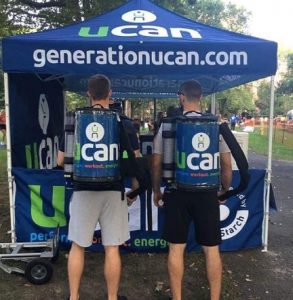
It began with Jonah
Jonah was born in 2001 with Glycogen Storage Disease (GSD), type 1a, a metabolic disorder that prevented him from breaking down glycogen – the polysaccharide humans use for energy. This meant that his parents had to feed him every two hours to maintain his blood sugar level and prevent seizures. They could never sleep more than a few hours at a time, setting alarms to ensure they never missed delivering uncooked cornstarch through a feeding tube (which at the time provided the best source of carbohydrate-based fuel).
The difficult reality they faced meant was that they would have to maintain this way of life indefinitely, recall Jonah’s parents, Wendy and David Feldman. “We were exhausted, just trying to go day by day and night by night,” says Wendy Feldman. They wanted more. Ultimately, they hoped for a cure for the rare disorder, which affects roughly 3,000 children in America each year.
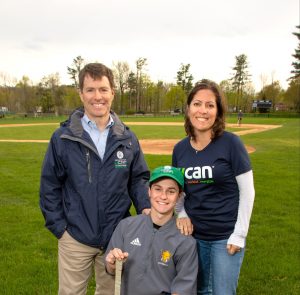
So the Feldmans decided to act. In 2002, with the help of family and friends, they started a public, not-for-profit (501c3) foundation called The Children’s Fund for Glycogen Storage Disease Research Inc.
They started by finding scientists with the right kind of expertise. One of the first meetings they had was with Stephen Squinto, cofounder of Alexion Pharmaceuticals, a biomedical company that focuses on rare disease research. The company was then located in Cheshire and now is headquartered in Boston.
From there, the enthusiasm grew. Squinto helped set up a symposium, bringing together researchers and families grappling with GSD.
Peter Kaufman, an IT expert, and his business partner Shoba Murali heard through word of mouth about the project and wanted to help. Together with the Feldmans, they formed a small company dedicated to the research at hand, with Squinto on board as a scientific advisor. Their aim was to find a cure but, with that goal potentially a long way off, they at least wanted to find a way to make life more manageable for Jonah and his family until then.
The seeds of UCAN were being planted, although nobody knew it yet.
“Sometimes you start with a purpose and never know where it’s going to lead, and ours is a success story,” says Murali, who is a co-founder of UCAN along with David Feldman, as well as its president and CEO.
As they began wrangling research and ideas, they stumbled onto something that would change everything: the work of Scottish researcher Richard Tester, who was using corn to make a slow-release starch, with a similar aim of helping kids with diseases like Jonah’s. The newly formed group paid initial rights to acquire that technology and worked from there. Murali explained that a very particular cooking technology, applied to a unique kind of non-GMO corn, provided the best results. “SuperStarch” was born.
They were ready to try the new formulation with Jonah in 2009, when he was eight years old. He made it through the night without a blood sugar drop for the first time in his life.
“The thought of being able to get a full night’s sleep was huge for us,” says Wendy Feldman. “We realized it worked and was reliable, and was giving us all a normal night’s sleep and a normal life.”
They’d figured out a “carb that doesn’t act like a carb,” says Murali. And they realized that although they may have discovered its most meaningful implication first, there were far more uses for the product, particularly in the athletic community.
Meb Keflezighi agreed. The renowned long-distance runner, who has competed in numerous marathons, won both the New York City and Boston Marathons and is an Olympic silver medalist, was one of the first athletes to try UCAN and jump on board as an athlete brand ambassador. He found it provided a more consistent energy level than other sports drinks and he didn’t feel as much soreness the day after a race. Other athletes quickly joined his ranks, including swimmer Michael Andrew, triathlete Natasha van der Merwe and a wide range of other accomplished individuals listed on the “athletes,” “experts,” and “ambassadors” sections of the company’s website.
UCAN had a soft launch at the Boston Marathon in 2010 before it officially went to market in 2012. The product – which comes in sugar-free, multi-flavored energy bars, energy powder and hydration powder – is currently sold at various running stores in Connecticut, on the UCAN website and elsewhere online, including Amazon. The company sponsors local road races, such as the New Haven Road Race, giving out samples to runners on site.
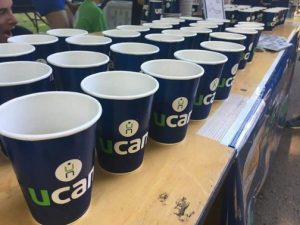
UCAN has also been adopted by a large number of college and professional sports teams that buy directly from the company, and has officially partnered with Lifetime Fitness gyms, which offer it in their onsite cafés.
“UCAN really symbolizes the inspirational belief that if you set your mind to something, you can do it,” Murali says. “We are on a mission. This is not just a product. We are about managing your steady energy and making that a very healthy part of your life.”
With that in mind, the company is growing, with team members working in Connecticut and beyond. Last June, the company completed a $5.75 million Series D funding round, led by eighteen94 capital, a venture fund of the Kellogg Company. A food and agricultural fund called S2G Ventures also invested in the round.
Murali says while the company’s current business goals are fitness and endurance, members of the UCAN team continues to evaluate how they can help populations dealing with various diseases, as they did with Jonah. She says they are conducting studies with individuals who are pre-diabetic or diabetic and “are very excited about the results.”
Dr. Cathy Yeckel, an assistant clinical professor at Yale University studying human metabolism, is among the experts who advise the company. In laymen’s terms, she describes what makes UCAN different like this: “Simple carbs are really small and absorbed very fast,” whereas complex carbs are bigger molecules, which are harder for the body to break down, and therefore provide longer-lasting energy.
And SuperStarch? It’s a really, really big molecule, and therefore breaks down really, really slowly.
The product has the capacity to allow “glucose-challenged” individuals take on activities – running a marathon, for example – they never thought possible. Yeckel believes the product has myriad uses in day-to-day activities, too.
“To me, it’s a puzzle. How do we use it in real life? A lot of it boils down to the metabolic process, whether you’re talking about an athlete or a busy mom,” she says.
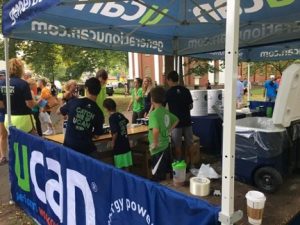
What’s more, UCAN has the passion, authenticity and drive that differentiates it as a truly great organization, she says. “As a company, they’re very gracious with their desire to help with all levels and activities, and to give back in lots of ways,” said Yeckel.
To the parents who started this entire journey, the growing UCAN team “has become like family, and is looking out for the well-being of our kid,” says Wendy Feldman. Jonah, now 17, has met many of the UCAN ambassadors and is a thriving teenage athlete himself. His parents hope he’ll continue to flourish using UCAN, until there’s a cure. It allows Jonah to “be a kid,” they say.
Just like the rest of the team, they can’t wait to see what’s next for UCAN.
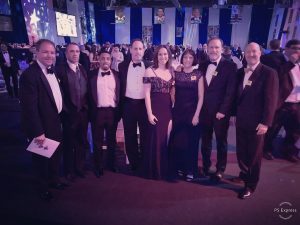
“When we first started the company, it was to find a cure for a rare disease. But it just snowballed into something bigger and bigger,” says David Feldman. “People buy into the story and are compassionate about the process, and once you do that, it really doesn’t feel like work. That’s the key to our team, our family, and everybody working so hard – because they believe in the product and the story behind it.”


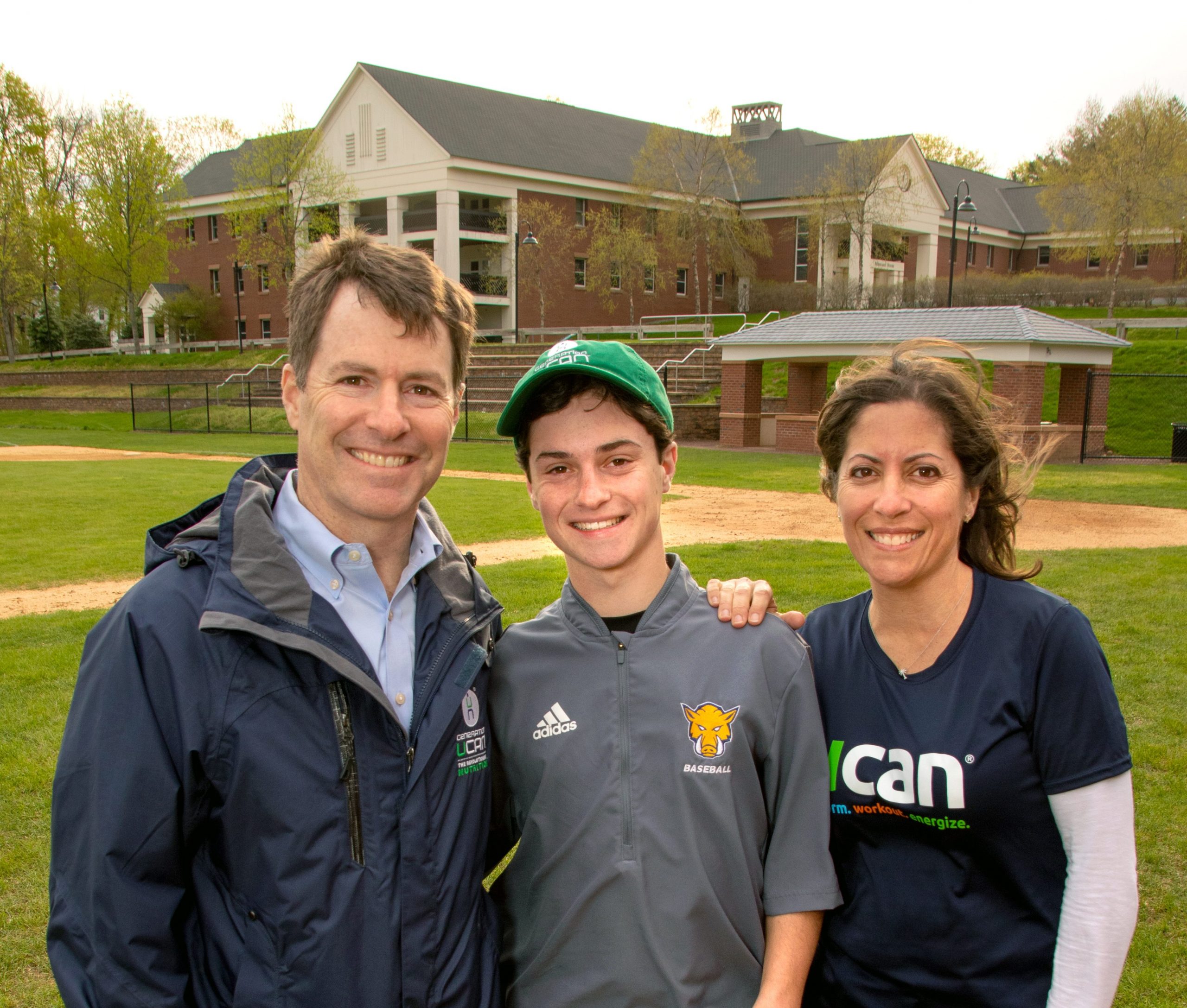



More Stories
Happy Senior Hour for the Holidays
At Home With Kerri-Lee
A New, Free Peabody Museum Prepares for Opening